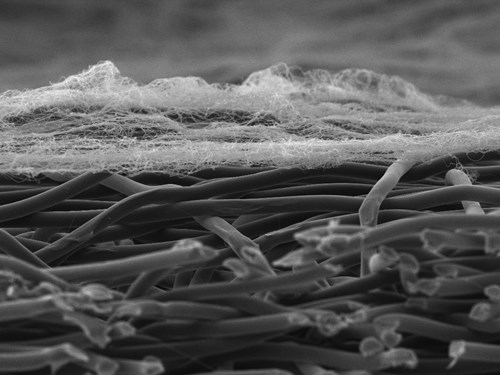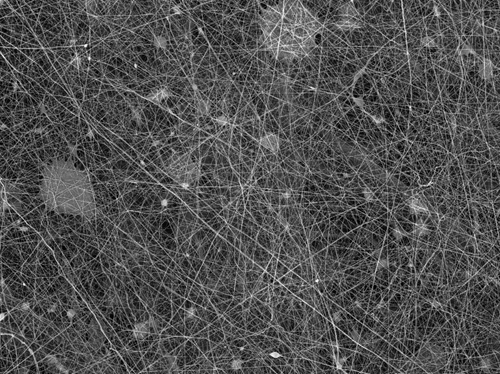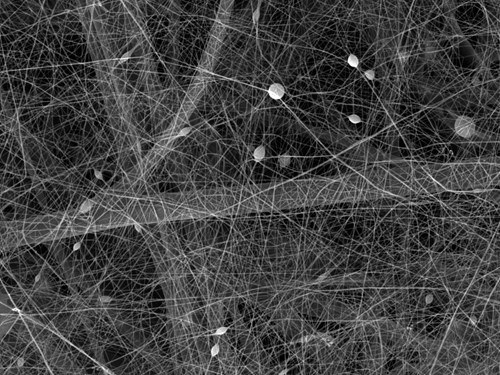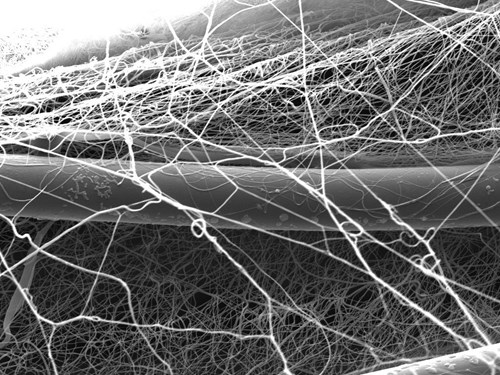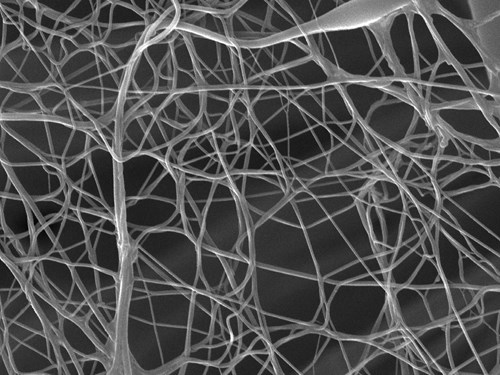The ELLIT (The European light industries innovation and technology) project is granted by the European Commission to support textile, clothing, leather, and footwear small-to-medium enterprises and enhance their competitiveness while helping them integrate new technologies in innovative or high added-value products, processes or services. Prof. Mirko Černák from the Department of Physical Electronics was granted this prestigious project named In-line plasma technology for a large throughput manufacturing of advanced nanofiber-based filter fabrics (Plasma Nanotex). It was solved by CEPLANT and the Plasma Nanotechnologies and Bioapplications research group led by Assoc. Prof. Dušan Kováčik.
The goal of this project was to improve the filtration capabilities of water and air filters used in the textile industry. Practical applications can be in the impovement of face masks or HEPA filters. The private company NAFIGATE Corporation owns a nanofibers manufacturing plant NAFIGATE Park. The factory itself is in Chrastava in the Liberec District. The Liberec region is a cradle of nanofibers manufacturing technology in the Czech Republic. The Department of Physical Electronics is equipped with the device Nanospider™ that scientists used for nanofiber production.
Even though the project ended in November 2021, the administrative side of the project was closed quite recently. It is the reason we inform about the project now. The Covid-19 pandemic greatly influenced the project duration from 09/2020 to 11/2021. Dr. Oleksandr Galmiz is one of the researchers that worked on the project. He comments that the cooperation and coordination of measurements and testing were challenging. Due to the Covid situation, the contact between DPE laboratory and the manufacturing line in the NAFIGATE Park company was limited. Researchers had to plan all experiments in such a way for them to be doable in DPE laboratory conditions. It was really difficult both technically and timewise. Due to the Covid-19 pandemic, the project was extended for three months so scientists could implement their plasma technology into the manufacturing line in the NAFIGATE Park. Dr. Galmiz adds: "At the end, we were able to confirm the inline efficiency, in a continual regime of the specific manufacturing process."
According to Assoc. Prof. Kováčik, there was a fundamental problem with the adhesion of nanofibers to a substrate. The company provided samples of different sizes and compositions, such as glass fibers, polyester, polypropylene, or polyethylene. Samples used as carrier substrates needed to be modified by plasma to improve the adhesion. Plasma was generated by DCSBD (Diffusion Coplanar Surface Barrier Discharge) in the air and directly inside the Nanospider™ device was coated with nanofibers using an electrospinning process. You can read more about the process on NAFIGATE Park webpage here. In the case of water filters, the nanofiber layer was subsequently again modified by DCSBD plasma to improve hydrophilic properties, so-called post-treatment.
Even the adhesion measurements themselves were a challenge. According to dr. Galmiz, the standard measurement methods of adhesion were not usable. He further comments: "Adhesion forces are so small that they are practically immeasurable. We had to come up with a new alternative measurement method of adhesion measurement. We used tests using an adhesive tape loop that determines the force necessary to rip off nanofibers from the surface of the substrate."
In the future, the Assoc. Prof. Kováčik's research team will focus on different materials and substrates and will continue to cooperate with the private sector in the development and application of plasma technology.
The success of the finished ELIIT project Is validated by several applied results - one utility model, two certified technologies, two functional samples, and contributions to conferences 13th International Conference on Nanomaterials (Nanocon 2021) and 8th Plasma Science & Entrepreneurship Workshop. Currently, the research team is working on a scientific article. The topic would be the application of plasma for the improvement of the adhesion of the nanofiber layer to the carrier substrate and the improvement of hydrophilic properties for water filter applications. Scientists also presented their results in June at the International trade fair Techtextil 2022 in Frankfurt am Main, Germany. You can read more about their contribution at Techtextil 2022 at CEPLANT.


